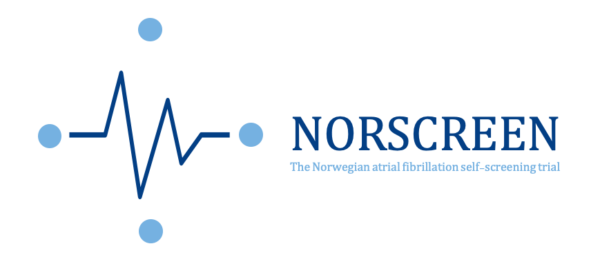Badania
System ECG247 jest owocem wieloletnich badań w dziedzinie technologii medycznej i kardiologii. System jest użyteczny i diagnostycznie dokładny, co potwierdzają liczne doniesienia.
System ECG247 jest aktualnie stosowany w kilku badaniach klinicznych i projektach badawczych.
Wybrane badania kliniczne

Norweskie badanie dotyczące samodzielnych badań przesiewowych w kierunku migotania przedsionków (NORSCREEN)
Badanie kliniczne NORSCREEN sprawdzi, czy samodzielne badanie systemem ECG247, wykrywanie wcześniej nierozpoznanych przypadków migotania przedsionków i wdrażanie leczenia profilaktycznego pozwoli na uniknięcie występowania udaru. Badanie obejmie 20 000 uczestników w wieku ≥65 i okres obserwacji do 5 lat. Podmiotami odpowiedzialnymi za badanie są Szpital Uniwersytecki w Oslo i profesor Sigrun Halvorsen.
Więcej informacji na ten temat znajduje się na stronie internetowej NORSCREEN.org

AFstudien.no
W badaniu AFstudien.no bierze udział >2000 uczestników. Głównym celem badania jest sprawdzenie, czy możliwe jest przeprowadzanie samodzielnych badań w kierunku migotania przedsionków. Wyniki zostaną niedługo opublikowane.
Artykuły naukowe
Edvard Liljedahl Sandberg, Sigrun Halvorsen, Trygve Berge, Jostein Grimsmo, Dan Atar, Rune Fensli, Bjørnar Leangen Grenne, Jarle Jortveit, Fully digital self-screening for atrial fibrillation with patch electrocardiogram, EP Europace, 2023;, euad075, https://doi.org/10.1093/europace/euad075
Ausland Å, Sandberg EL, Jortveit J, Seiler S. Heart rhythm assessment in elite endurance athletes: A better method? Frontiers in Sports and Active Living. 2022;4.
Jortveit J, Früh A, Odland HH. Paroxysmal Tachycardia Diagnosed by ECG247 Smart Heart Sensor in a Previously Healthy Child. Case Reports in Pediatrics. 2022;2022:9027255.
Jortveit J, Fensli R. Remote ECG Monitoring by ECG247 Smart Heart Sensor. International Journal of Telemedicine and Applications. 2022;2022:6812889.
Sandberg EL, Grenne BL, Berge T, Grimsmo J, Atar D, Halvorsen S, et al. Diagnostic Accuracy and Usability of the ECG247 Smart Heart Sensor Compared to Conventional Holter Technology. Journal of Healthcare Engineering. 2021;2021:5230947.
Fensli, R, et al. Clinical evaluation of a wireless ECG sensor system for arrhythmia diagnostic purposes. Medical engineering & physics, 2013, 35.6: 697-703.
Fensli, R. W., & Svagård, I. S. A Proposed Desentralized Holter Diagnostic procedure. Paper presented at the 23rd International Conference of the European Federation for Medical Informatics, Oslo. 2011
Fensli, R., Dale, J. G., O`Reilly, P., O’Donoghue, J., Sammon, D., & Gundersen, T. (2009). Towards Improved Healthcare Performance: Examining Technological Possibilities and Patient Satisfaction with Wireless Body Area Networks Journal of Medical Systems, SpringerLink Date Tuesday, May 12, 2009. doi:DOI 10.1007/s10916-009-9291-8
Fensli, R., Gundersen, T., Snaprud, T., & Hejlesen, O. Signal quality of wearable sensors, methods for comparing recordings from a wireless ECG sensor to established clinical standards. Paper presented at the pHealth2009, The 6th international workshop on Wearable Micro and Nanosystems for Personalised Health Oslo, Norway. 2009
Fensli, R. Design Principles and Evaluation of a Wireless ECG Sensor System. Saarbrücken: VDM Verlag Dr. Müller. 2009
Fensli, R, et al. Sensor acceptance model–measuring patient acceptance of wearable sensors. Methods of information in medicine, 2008, 47.01: 89-95. hFensli, R. Design Principles and Evaluation of a Wireless ECG Sensor System. Saarbrücken: VDM Verlag Dr. Müller. 2009
Fensli, R; Boisen, E. Human factors affecting the patient’s acceptance of wireless biomedical sensors. In: International Joint Conference on Biomedical Engineering Systems and Technologies. Springer, Berlin, Heidelberg, 2008. p. 402-412.
Fensli, R. A Wireless ECG Sensor System for Arrhythmia Detection. Design Principles, Clinical Evaluation and Patient Acceptance. (Ph.D.), University of Aalborg, Aalborg, Denmark. 2008
Fensli, R., & Boisen, E. (2008, Jan 28-31). How to evaluate human factors of wireless biomedical sensors. Identifying aspects of patient acceptance based on a preliminary clinical trial. Paper presented at the International Conference on Health Informatics, HEALTHINF, Funchal, Madeira-Portugal. 2008
Fensli, R., & Boisen, E. (2008). Human Factors Affecting the Patient’s Acceptance of Wireless Biomedical Sensors. In A. Fred, J. Filipe, & H. Gamboa (Eds.), BIOSTEC 2008, CCIS 25 (pp. 402-412). Berlin Heidelberg: Springer-Verlag. 2008
Fensli, R., Hansen, F. Ø., Gunnarson, E., & Gundersen, T. (2006, June 12-14). Wearable Biomedical Sensors in a Tele-home-care Context, a Foresight Scenario. Paper presented at the Tromsø Telemedicine and eHealth Conference, Tromsø, Norway.
Fensli, R; Gunnarson, E; Gundersen, T. A wearable ECG-recording system for continuous arrhythmia monitoring in a wireless tele-home-care situation. In: 18th IEEE Symposium on Computer-Based Medical Systems (CBMS’05). IEEE, 2005. p. 407-412.
Fensli, R; Gunnarson, E; Heljesen, O. A wireless ECG system for continuous event recording and communication to a clinical alarm station. In: The 26th Annual International Conference of the IEEE Engineering in Medicine and Biology Society. IEEE, 2004. p. 2208-2211.
Fensli, R; Gunnarson, E; Heljesen, O. A wireless cardiac alarm system for continuous event recording. In: Building High Performance Healthcare Organizations, Medinfo 2004, Proceedings of the 11th World Congress on Medical Informatics, 7-11 September 2004, San Francisco, CA, USA (CD-ROM). International Medical Informatics Association (IMIA); American Medical Informatics Association (AMIA), 2004. p. 1589.
Fensli, R; Gunnarson, E; Heljesen, O. A wireless ECG system for continuous event recording and communication to a clinical alarm station. In: The 26th Annual International Conference of the IEEE Engineering in Medicine and Biology Society. IEEE, 2004. p. 2208-2211.
Fensli, R; Gunnarson, E; Heljesen, O. A wireless cardiac alarm system for continuous event recording. In: Building High Performance Healthcare Organizations, Medinfo 2004, Proceedings of the 11th World Congress on Medical Informatics, 7-11 September 2004, San Francisco, CA, USA (CD-ROM). International Medical Informatics Association (IMIA); American Medical Informatics Association (AMIA), 2004. p. 1589.



